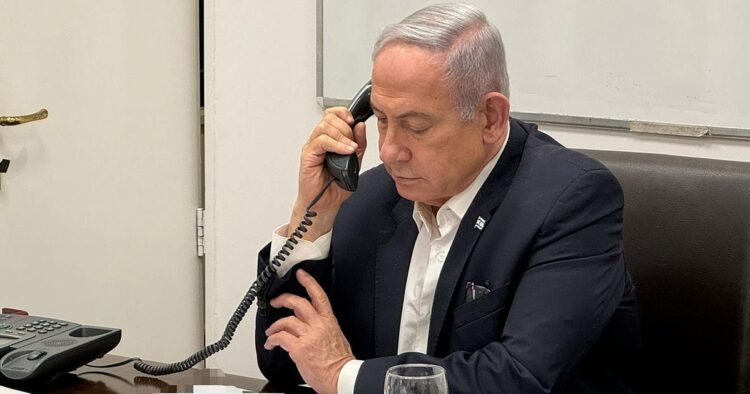In a recent development, President Joe Biden conveyed to Israeli Prime Minister Benjamin Netanyahu that the United States would not engage in a retaliatory action against Iran following a drone and missile strike on Israeli territory. This message, delivered in a phone call, underscores America’s stance against direct involvement in any potential conflict escalation between Israel and Iran. A White House official confirmed this communication, emphasizing the U.S. commitment to assisting Israel’s defense while advocating for peace over warfare.
The attack, reportedly launched from inside Iran, targeted Israel following tensions sparked by a suspected Israeli strike on an Iranian consulate in Syria earlier in April. Despite the scale of the assault involving over 300 missiles and drones, most were intercepted with assistance from U.S., British, and Jordanian defense systems. While an Israeli Air Force base sustained damage, casualties were limited, with only one child suffering serious injuries from shrapnel.
Amidst escalating tensions, Israeli officials signaled a cautious approach, expressing intentions to build a regional coalition rather than pursue immediate retaliation. Defense Minister Yoav Gallant highlighted the opportunity to form strategic alliances against the perceived threat posed by Iran, which has consistently denied pursuing nuclear weapons.
Iran, on the other hand, issued warnings of further escalation if Israel retaliates, indicating readiness to broaden its response beyond the recent attack. Iranian officials assert the strike was a limited act of self-defense against alleged Israeli provocations and claim to have notified regional neighbors, including Turkey, in advance.
The international community has urged restraint, with key global players such as Russia, China, France, Germany, and Arab states calling for de-escalation. The United Nations Security Council convened to address the situation, emphasizing the importance of preventing further conflict in the volatile region.
Analysts speculate on the motives behind Iran’s attack, debating whether it aimed for significant damage or sought to assert its position domestically without provoking an all-out war. While tensions remain high, the seizure of an Israel-linked cargo ship by Iran’s Revolutionary Guards in the Strait of Hormuz adds complexity to the situation, highlighting the potential economic ramifications of a wider conflict.
In the midst of these developments, regional conflicts, such as the war in Gaza and skirmishes with Iran-aligned groups in Lebanon, Syria, Yemen, and Iraq, continue to fuel instability. Despite the gravity of the situation, sentiments vary among the affected populations, with Israelis expressing resolve in the face of aggression and Iranians voicing concerns about the potential repercussions of heightened tensions.
As the situation unfolds, diplomatic efforts to mitigate escalation remain paramount, with hopes pinned on dialogue and cooperation to avert further conflict in the Middle East.

















Comments